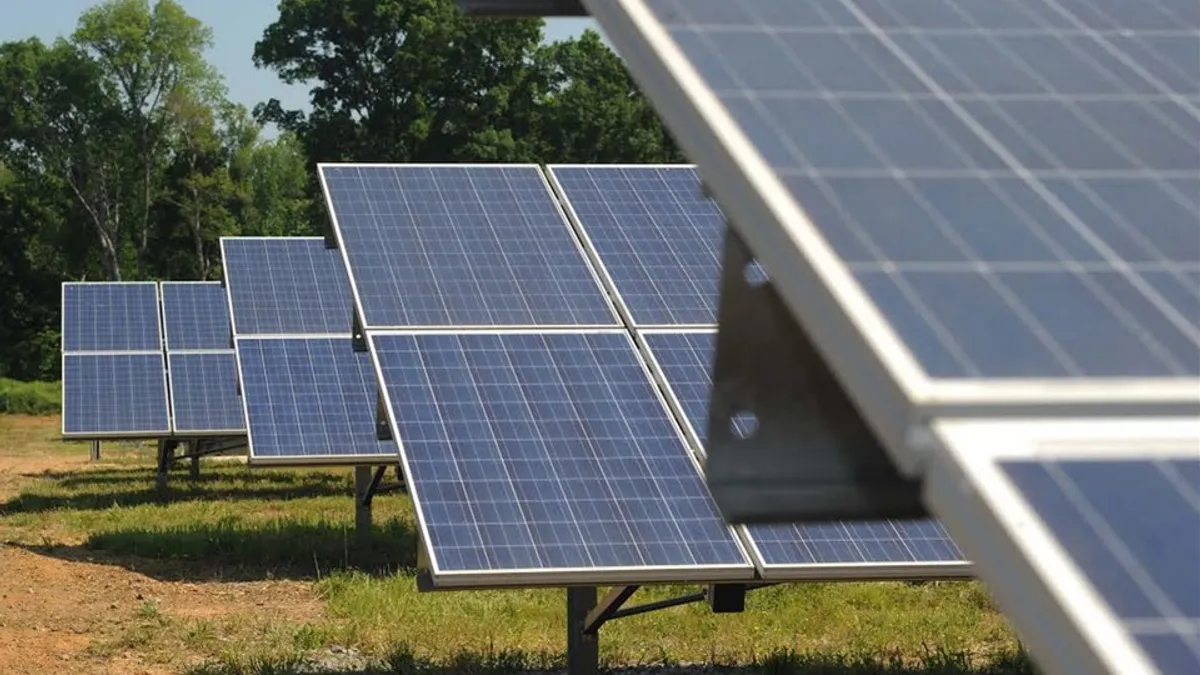Dive Brief:
- Duke Energy wants North Carolina regulators to reduce the amount it must pay to small renewable energy facilities covered by the Public Utility Regulatory Policies Act, saying lower natural gas costs have cut the utility's avoided cost.
- Winston-Salem Journal reports Duke believes customers will overpay by about $1 billion over the next 12 years due to the contracts. The utility says its avoided cost is now $35/MWh, but it pays $55/MWh to $85/MWh to solar developers.
- The utility has proposed changes to how the state implements PURPA, including lobbying for a new bidding process and a a reduction in the size and contract lengths for projects.
Dive Insight:
Duke is continuing to push for changes to PURPA contracts, but the Journal reports developers are expected to resist the utility's proposal to reduce compensation.
"The statement Duke made that customers are overpaying for solar is just plain wrong,” Strata Solar Senior Vice President Brian O’Hara told the paper.
The North Carolina Utilities Commission will hold a hearing in April to consider changing Duke's avoided cost rates. Regulators set those rates every two years. Duke has been pushing for changes to how the state administers PURPA, which aims to help level the playing field for smaller renewable projects. But the utility says the law leaves customers paying more than they should.
In addition to the avoided cost, project size and contract length are issues. Duke would like to see a reduction in the size and contract lengths and previously proposed reducing the size of projects to 1 MW instead of 5 MW while pushing for 10-year contract lengths rather than 15.
Last summer, Duke made an arrangement allowing dozens of projects to interconnect to the grid. There were 3,300 MW of proposed solar projects pending in the state, which Duke said could interfere with the system's ability to provide power to retail load customers.
To avoid these problems, the utility worked out an agreement with solar companies allowing their projects to move forward, while giving Duke the authority to disconnect them from the grid.














